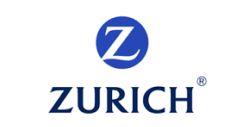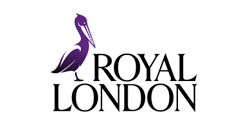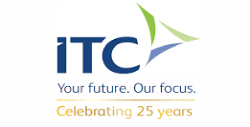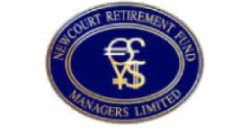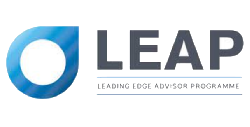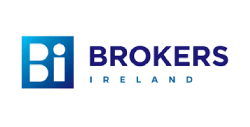Retirement is a time we all look forward to, where we can relax and enjoy the fruits of our labour. Setting up a private pension is wise to ensure a stable and worry-free retirement in Ireland. Private pension are becoming popular because of their many benefits.
First things first, what exactly is a private pension?
A private pension is a long-term savings plan you contribute to throughout your work. The money you invest is typically managed by a pension provider, who invests it in various assets like stocks, bonds, and property. Over time, your contributions and the investment returns accumulate, forming a pot of money you can access upon retirement.
When Should I Set Up A Private Pension In Ireland?
The earlier you start, the more time your contributions have to grow through compounding. This means your initial investments and the returns they generate keep generating even more returns over time, snowballing your retirement pot.
Starting early gives you more flexibility to adjust your contributions as your income and lifestyle change. If you start later, you might need to contribute significantly higher amounts to catch up.
Securing a private pension early brings stability and peace of mind for your future. Knowing you’re building a nest egg can take the edge off retirement anxieties. It is advisable to start investing in a private pension in your 20s.
Who Can Set Up Private Pension?
In Ireland, setting up a private pension is generally open to a broad range of individuals, but there are certain eligibility criteria and considerations to remember. Here’s an overview of who can set up a private pension.
- Employees: Many employers in Ireland offer pension schemes to their workers as part of their employee benefits package. Employees can usually participate in these workplace pension schemes, including contributions from the employee and the employer.
- Self-Employed Individuals: Self-employed individuals, such as freelancers, sole traders, and business owners, can set up private pensions to save for retirement. They can choose the type of pension plan that suits their needs.
- Individuals with Multiple Jobs: If you have multiple part-time jobs or work for different employers, you can still set up and contribute to a private pension for each job. This allows you to build separate retirement savings.
Therefore, it’s advisable to consult with a financial advisor or professional pension transfer specialist to determine the most suitable private pension plan for your needs and to understand the specific eligibility requirements that apply to your situation.
Which Type Of Pension Plan Should I Choose?
The type of pension plan you choose depends on various factors. It includes financial goals, risk tolerance, employment status, and personal circumstances. In Ireland, there are several types of pension plans to consider.
Some of the private pension types are as follows.
Personal Retirement Savings Account (PRSA)
A PRSA is a popular and flexible option for employed and self-employed individuals. You choose your investment funds, manage your contributions, and can transfer the plan easily if you change jobs.
Occupational Pension Schemes
Employers typically offer them to employees as part of their benefits package. In this plan, contributions are made by both the employee and the employer. Two types of plans exist: Defined Benefit (DB) and Defined Contribution (DC) schemes. DC schemes are more common and offer more investment control to the members.
Personal Pension
Similar to a PRSA but with broader investment options and more control over your investments. It is a better plan as you can select investment fund types and fee schedules. It also offers stability and more profit. However, they often have higher fees and require more financial knowledge.
Executive Pension/Director Pension
Executive pension is specifically designed for company directors and business owners. These plans offer higher contribution limits and tax benefits. In a master trust, the director and shareholder invest in a defined period. After the maturity of the investment, both participants can have the investment return, or the director can give all the funds to his employees.
How to Start Private Pension in Ireland
Starting a private pension in Ireland involves several steps to ensure you set up a plan that suits your financial goals.
Here’s a step-by-step process of pension transfer in ireland
- Research Pension Options: Take some time to learn about different types of pensions, how much you can put into them, and the tax benefits they offer. This will help you get the basics of planning for retirement.
- Set Your Retirement Goals: Start by deciding what you want your retirement to look like. Consider when you want to retire and how much money you’ll need. This will help you figure out how much to save and for how long.
- Seek Professional Advice: Pension or insurance agencies can give personalised advice based on your situation. They can help you understand your choices, explain what’s available, and create a pension plan that’s just right for you.
- Make Use Of Online Tools and Calculators: Financial agencies have tools and calculators to help you determine how much money you’ll need for retirement, see how different savings levels can impact your future, and predict how your pension will grow. These valuable tools can help you make smart decisions.
- Assess Your Current Financial Situation: Look at what you’ve already saved, your current investments, and any other financial support you might have. This will give you a starting point to see how much more you need to save for retirement.
- Determine Your Risk Tolerance: Consider how comfortable you are with taking risks regarding your investments. Think about how long you’ll be working before retiring, what you want to achieve financially, and how well you can handle changes in the value of your investments.
- Choose a Pension Provider: Find a trustworthy company that offers the type of retirement plan you want. If you’re unsure, don’t worry – many agencies can help you make a well-informed decision to increase your chances of having a financially secure and peaceful retirement.
Tax Relief On Pension Contributions
Tax relief means you can pay less taxes when you put money into your private pension in Ireland. The amount you can save in taxes depends on how much money you make and how old you are.
For example, if you make an average amount of money, you can get 20% off your taxes for the money you put into your pension. But if you make more money, you can get an even better deal – 40% off your taxes!
There’s a limit to how much money you can earn and still get this tax break, though. Right now, the most you can make and still get the tax relief is €115,000 a year.
If you work for a company, the amount of tax relief you can get also depends on how old you are and how much money you earn. You can get tax relief on part of your earnings, up to a certain percentage based on age.
For instance, let’s say you’re 42 years old and you earn €40,000 a year. You can get tax relief on up to €10,000 of your yearly pension contributions.
Setting Up Your Pension with Clever Money
Clever Money is a reputed financial planner Ireland that can help you choose and invest in the right retirement plan. Our agents know the market well and help you yield more profit. You can also save a lot of money for your family and generation.
To get started with your stable retirement plan, visit our website now!
FAQs
What is an occupational pension scheme?
An occupational retirement scheme is a savings plan set up by your employer to provide you with income after you stop working. It’s a workplace pension offered by your company.
What is the most popular type of pension plan?
Occupational defined contribution (DC) plans are likely the most common type of pension in Ireland due to their widespread prevalence in workplaces.
What is the most beneficial retirement plan?
The retirement or insurance plans employers sponsor are the most beneficial and revenue-generating plans.










